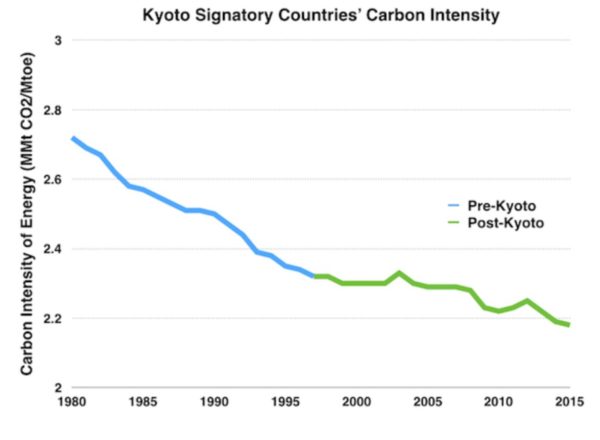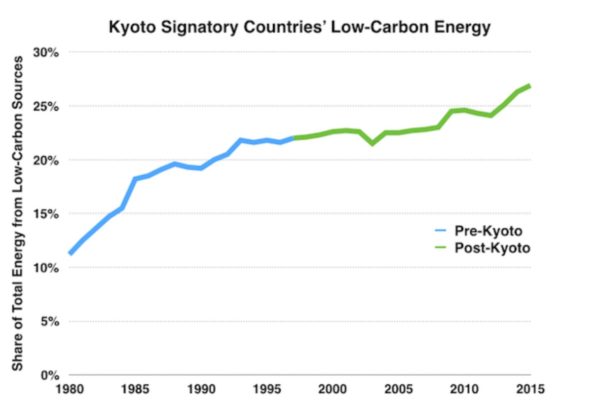Word is that President Trump will announce his decision on whether the U.S. will remain in the Paris Climate Accord at 3 pm eastern time today. It is rumored that he will withdraw the U.S. from the Paris Accord, probably by invoking its own clause allowing for withdrawal on a four-year timeline, but that the U.S. will remain a full participant in the UN’s Framework Convention on Climate Change, which is the diplomatic circus behind the whole climate cabal. This latter step may be just a means of placating his own internal factions (including his own daughter and son-in-law who have drunk the Klimate Kool-Aid) who want the U.S. to remain in the Paris Accord.
It is still possible, even at this late hour, that Trump may surprise all of us by announcing that we’re staying in the Paris Accord, but reducing our greenhouse emissions cutback commitment, which is allowed in the terms of the Accord. This would be a major mistake. He’d reap all of the same criticisms, and get none of the benefit. But it may depend on whether Ivanka and Jared are haranguing him after lunch today.
In one sense, the Paris Accord is so weak and unserious that it doesn’t much matter to the climate whether we stay or go. This is one reason why major oil companies want us to stay in, but chief climatista James Hansen calls the Paris Accord a “fraud.” Nevertheless, Tom Steyer is already shrieking that withdrawal from the Paris Accord would be a “declaration of war” against the American people. In fact, if you’re a true-believeing climatista, it is possible that the cause of reducing greenhouse gas emissions might prosper better without the Paris Accord.
The argument for indifference can be seen in these two simple charts, produced by our friends at the green-leaning Breakthrough Institute, which show that the Kyoto Protocol had no discernible effect on the rate of decarbonization that has been steadily taking place for decades now:
As Breakthrough observes, “Overall, the carbon intensity of economies that were party to the Kyoto Accord fell more rapidly in the decade before the agreement was signed than in the decade after.” This will not actually surprise anyone familiar with the metadata on most government regulatory interventions.
Of course, if you take in the full implication of these two charts, the first question is you ask is, “Why do we need all these international climate bureaucrats and irrelevant pieces of paper?” But of course you equally know why: the important thing here is to expand political authority and bureaucratic power over the energy sector of the world economy. That’s the real reason for the political outcry against Trump saying that the climate emperor has no clothes. And if we don’t drive a stake through the heart of the Paris Accord, like the tax code after every partial reform, climate diplomacy will spring back to life with fresh rounds of corruption and coercion under a future president.


Notice: All comments are subject to moderation. Our comments are intended to be a forum for civil discourse bearing on the subject under discussion. Commenters who stray beyond the bounds of civility or employ what we deem gratuitous vulgarity in a comment — including, but not limited to, “s***,” “f***,” “a*******,” or one of their many variants — will be banned without further notice in the sole discretion of the site moderator.